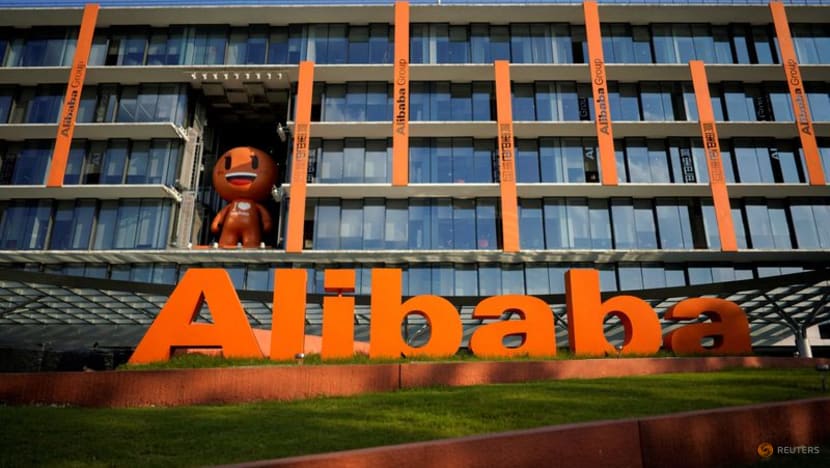Commentary: Alibaba’s latest shakeup highlights its conundrum
Bringing in Joe Tsai, a long-time confidant of founder Jack Ma, to replace Daniel Zhang should help steady the ship for the Chinese internet giant, says Bloomberg Opinion’s Tim Culpan.

TAIPEI: An investor in any of Alibaba Group’s six divisions will be faced with a choice: Profit or growth.
As it stands now, none of the units being spun off from the parent offer both, which is a good enough reason for the Chinese internet giant to reshuffle its leadership.
When Alibaba announced its breakup three months ago, Chairman and CEO Daniel Zhang was to sit atop the broader holding company while also being head of its struggling cloud division.
The board seems to think that’s not a good idea, so on Tuesday (Jun 20) announced it’s bringing in company veteran Joe Tsai as chair and Eddie Wu as CEO. Wu keeps his role as chairman of the domestic e-commerce division Taobao and Tmall Group while Zhang will focus solely on cloud.
GOING PUBLIC
As many as five of the six divisions could be headed for an initial public offering (IPO) over the next 18 months. Investors in young startups love a growth story, and Alibaba Group offers that.
Only the digital media and entertainment group looks like a dunce - sales fell 2.4 per cent last year - which probably makes it ripe for a merger or takeover. Shareholders also expect to see a path to profitability, but this is less clear.
Taobao, which accounts for 67 per cent of revenue, is the only one to make a profit. But it has slowed, with revenue down 1.7 per cent last year, and isn’t due for an IPO, anyway.
Putting Tsai, a long-time confidant of founder Jack Ma, in charge should help steady the ship. With each of the spun-off units operating independently, the holding company will have far less to do than in the past.
That’s because the parent will largely comprise Taobao, as well as the group’s cash and investments. So it makes sense for Wu, who runs the Taobao unit, to also be CEO of Alibaba Group.
It’s now up to him to reignite growth at Alibaba’s cash cow, and if not then Tsai will be tasked with finding someone who can.
ALIBABA CEO DANIEL ZHANG’S FATE
This does seem like a demotion for Zhang. It’s hard to view his removal from the chairmanship of a US$240 billion company as anything else.
But there’s another way to look at it. Zhang is a lion at the company.
He helped propel Tmall - the online store for branded products - and Taobao, the more general marketplace, through some boom years, including the invention of the 11.11 Singles’ Day shopping event. He’s been a chief financial officer and a chief operating officer, which makes him a well-rounded executive.
Cloud computing has offered great promise to Alibaba and rivals including Tencent and Huawei. But the potential has yet to be realised, with Alibaba Cloud continuing to lose money.
If Zhang turns it around and produces sustained profits, then he’ll be the hero in charge of what could grow to become worth just as much as the parent is today. If it fails, then his future at the company will be in doubt.
The signs look good. The renamed Cloud Intelligence Group is the second-largest unit and is best poised to be the next giant.
But it has posted losses the past three years and was enjoying strong double-digit growth until it hit a rough patch last year, with sales climbing just 3.5 per cent.
That was likely a one-time occurrence because an unnamed “top customer” overseas ditched Alibaba “due to non-product related reasons”.
This is believed to be ByteDance’s TikTok, which was forced to move its data centres out of China and into the United States as part of Washington’s crackdown on the short-video platform. Had the division repeated the 23 per cent growth of the year prior, then Cloud may have been close to break even.
INVESTORS SHOULD APPLAUD ALIBABA’S SWIFT ACTION
However the next 12 months shake out for Alibaba and its offspring, investors should laud the fact that its leadership recognised the need for change and acted swiftly to put together a revitalisation plan.
Management could have relaxed in the belief that an improving Chinese economy would be the tide that lifts growth across all divisions.
They didn’t, and in the haze of China’s current industrial and policy climate, being fast to pivot may be the most valuable step to take.


















